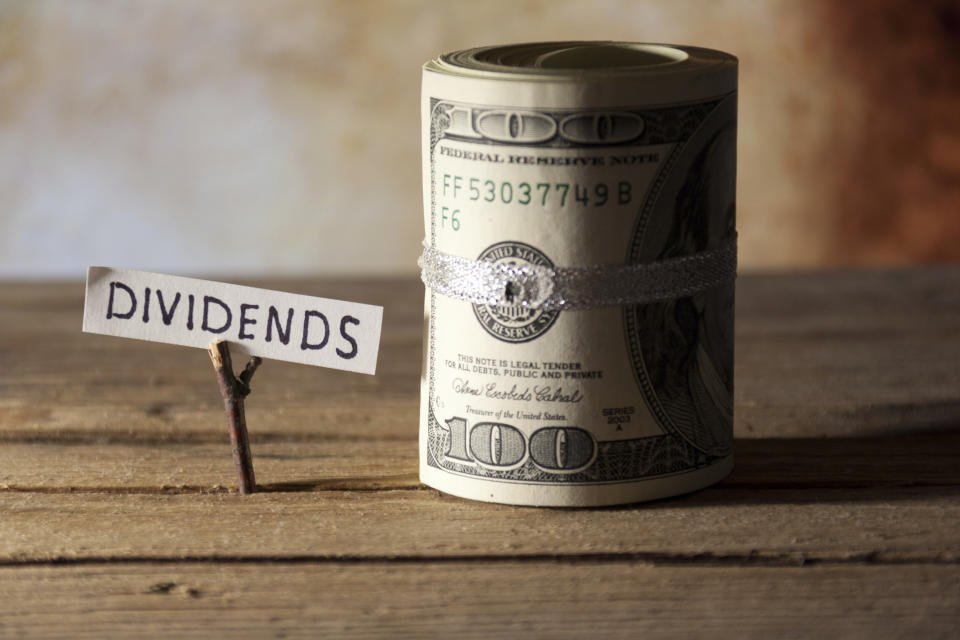Is Comcast's Dividend Sustainable?
Comcast (NASDAQ: CMCSA) is a successful provider of a range of cable services, including high-speed internet, video, voice, business services, and advertising. It also owns NBCUniversal, which generates revenue from areas like broadcast television, films, theme parts, and cable networks. And, late last year, Comcast closed its acquisition of British TV and media giant Sky Limited, which is set to provide a large boost to the company's financial performance going forward.
Although it's not the highest-yielding stock in the world, Comcast offers a respectable dividend yield of 1.98%. Moreover, the company has a long history of not only paying investors a dividend but of also raising it over the years.

Image source: Getty Images.
Here's why investors in Comcast can count on the company's dividend for the foreseeable future.
Dividend backed by robust cash flow
A company's ability to pay dividends over a prolonged period is highly dependent on how much free cash flow it generates. So it's important that investors look at Comcast's free cash flow per share over the last 12 months. That figure works out to just over $2.71 per share.
Comcast's most recently declared quarterly dividend of $0.21 -- up from $0.19 for the preceding four quarters -- translates into an annualized dividend of $0.84 per share. This represents just under 31% of the company's trailing-12-month free cash flow per share, which is a good sign that the dividend is sustainable.
Now, there are a couple of things that investors need to keep in mind, though. Comcast reported having a lot of net debt at the end of its most recent quarter -- $108.1 billion, to be exact. Comcast added significantly to its debt load with its acquisition of Sky, but the good news is that the Sky business should also enable a significant increase in free cash flow for the cable giant.
However, because Comcast has so much debt, it needs to allocate some of its free cash flow to service that debt. In 2018, the company's interest expense came in at about $3.54 billion, and if the company didn't touch the principal in 2019, that figure would be set to rise significantly.
With that being said, Comcast's net leverage ratio stood at 3.3 times EBITDA at the end of last quarter, something that it wants to reduce in order to have a better credit rating. Back in October 2018, Comcast CFO Michael Cavanagh said that the company hoped to improve its leverage ratio following the Sky acquisition.
The good news for income-oriented investors is that Comcast isn't going to be sacrificing the dividend or even its dividend growth to achieve that -- it's just going to suspend its buyback program (under which it bought $5 billion worth of shares in 2018) for 2019.
Investors should also keep in mind that Comcast generated $12.6 billion in free cash flow during 2018. Assuming the cable giant's dividend obligations grow to about $3.3 billion in 2019 and its interest expense for the entirety of 2019 came in at $4.52 billion, the company's 2018 free cash flow figure would still be enough to pay the dividend, cover interest expenses, and pay down some of the principal.
The good news is that the acquisition of Sky, coupled with the continued growth in the rest of the business in aggregate, should mean that Comcast's free cash flow for the entirety of 2019 will be significantly above that $12.6 billion number.
Investor takeaway
Investors in Comcast don't have anything to fear with respect to the dividend. The company's financial performance should allow it to easily cover the current dividend while also giving it ample room to service and reduce its long-term debt load. Over the long term, investors should expect the company to continue delivering annual dividend boosts, which is something that income-oriented investors should certainly appreciate.
More From The Motley Fool
Ashraf Eassa has no position in any of the stocks mentioned. The Motley Fool recommends Comcast. The Motley Fool has a disclosure policy.
